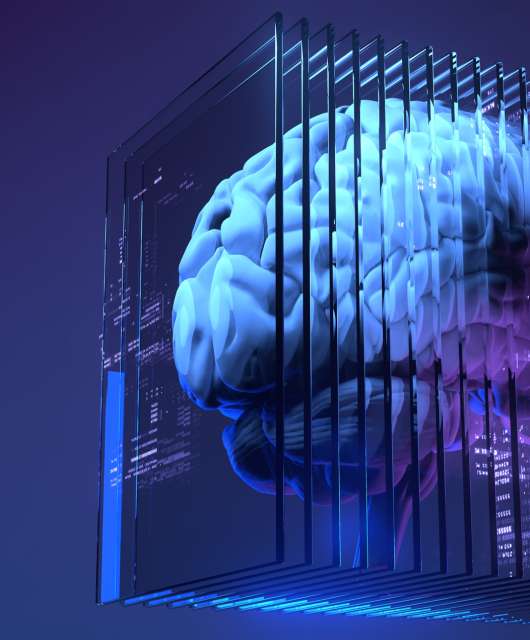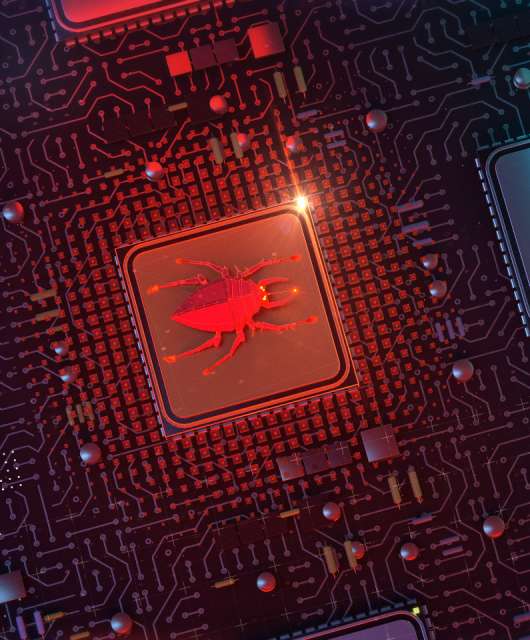Artificial Intelligence (AI) technology continues to evolve at an astounding pace. This year we will see a number of new developments which could have implications for home users like yourself.
Trend: AI-enabled chips
Although impressive, Artificial Intelligence systems are somewhat limited by the physical design of current computer chips. Processors like those found in your laptop at home are built for general workloads – playing games, surfing the web, writing emails etc.
The demands of AI applications are remarkably different however, so existing processors are unable to provide optimal performance. In 2019, manufacturers like Intel, NVIDIA, AMD, Qualcomm and ARM are set to release new chips that are optimised for AI. They will be focused on specific demands, like speech recognition and natural language processing.
What it means for you
As these new chips begin to appear in consumer electronics we should start to see features like voice assistants (Siri, Google Now, Amazon Alexa) become a lot more intelligent and effective. We should also see AI appearing in other technologies like cameras too.
Like every new technology, there is potential for hackers to exploit these chips to steal information or to break into networks. This is particularly true of cutting edge technology which may have bugs or security loopholes that are yet to be identified and fixed by the manufacturer.
Automated Machine Learning “let loose”
At the moment, AI takes a relatively long time to set up. This is because the system must first be taught how to work using a process called “Machine Learning” (ML). Usually this involves feeding large amounts of data into the system, then training it to understand what the information means.
Take Google’s Deep Learning system which can help to diagnose cancer for instance. Researchers fed thousands of breast scan images into the program, and then taught the application which pictures were positive for the presence of cancerous cells, and those which were clear. Eventually the system learned how to read the images automatically without needing guidance.
The problem is that this Machine Learning process can take a considerable amount of time to get right. Deep Mind has been years in the making.
2019 will see the release of a new development called AutoML, a technology designed to speed up and automate the training process. In future, developers will be able to define their application and expected outcomes, and AutoML will take care of the training and learning. This will make it much quicker and easier to build and release smart applications.
What does this mean for you?
Examples like Google Mind show how AI and Machine Learning can change the world. But at the same time, if AI is left to train itself without any safeguards in place, it is very difficult to predict potential outcomes. There is nothing to say that every decision or outcome made by the system will be positive or healthy.
Traditional coding errors create software bugs that can be exploited by cybercriminals. Similarly, misconfigured AutoML systems could create their own security weaknesses if not closely monitored by AI developers. If your data is held in one of these AI applications, there may be a risk of information being leaked, lost or stolen.
2019 – an exciting year
Artificial Intelligence systems are finally maturing and beginning to have an effect on day-to-day life. In most cases we will never see AI at work – but we should all begin to benefit in the near future.








2 comments
Artificial Intelligence is something which never dies, Looking forward to Big Giants like Intel, AMD, Qualcomm uses AI to develop even more advanced chips for various advancements such as Voice Search, Siri, Google Voice, Amazon Alexa, etc.
Cant believe how given the nature of human beings propensity to do such incredibly stupid things not to mention the pychopathic nature of so called elite that generally the sleeping general public will just trust and trust and …….. really think ai will be a benefit to us all when its end game is something else the 20th century was the fastest jump in tech in known history yet the crazies wiped out 100 million + ww11 gave us nukes rockets plastics synthetics modified drugs think meth = blitzkrieg etc etc its rather a sad indictment that fear driven development during mass madness brought forth all these things pity humanity cant seem to evolve on the path of kindness ethics and the real…. so yes ai ,am i really so stupid as to believe it will benefit me ? or should i remain awake and never forget the truth about the nature of humanity , will a talking ai aware assistant really be all there is to it ……… thankfully / hopefully wont be around to watch the circus evolve a machine taught to think for it self and evolve will soon realise how messed up we humans are and as such the best scenario is an organic planet run by machines -ai and an extinct race of modified monkeys ! enjoy your gadgets